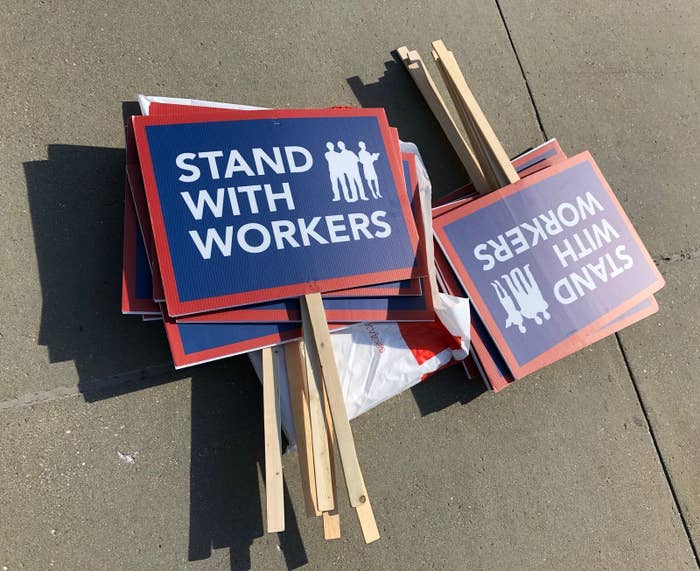
The Supreme Court on Wednesday ruled that public sector unions' "agency fees," fees required of nonmembers, violate the First Amendment — a long-sought victory by opponents of the fees that was quickly decried by unions.
Justice Samuel Alito wrote the court's 5–4 ideologically split decision in Janus v. AFSCME, Council 31, overruling a 1977 case that allowed the fees, Abood v. Detroit Board of Education.
Although Wednesday's ruling was new, the issue isn't. Related questions have been before the justices off and on for the past six years — with Alito serving as the driving force to overturn Abood, first by questioning its reasoning and limiting its reach in past cases and then by taking on the ruling directly.
In January 2016, the justices heard arguments on the issue — with the court appearing to be headed to a 5–4 ruling against the unions. Then, Justice Antonin Scalia died and the court split 4–4 — a ruling that meant agency fees would still be allowed in the public sector for the time.
When President Donald Trump won the election, however, conservatives who had been backing the effort to roll back public sector unions' influence prepared to bring the question back to the high court once a new justice was confirmed.
The Supreme Court granted the case — brought by Mark Janus against the American Federation of State, County, and Municipal Employees, Council 31, in Illinois — in late September, once Justice Neil Gorsuch had joined the court, and heard arguments in February.
Although Gorsuch was at the arguments, he and Justice Clarence Thomas — who generally asks no questions at oral argument — were the only two silent justices for the hourlong arguments that had four different lawyers making their case for or against the agency fees.
Gorsuch on Wednesday provided Alito — who has long sought the court's ruling, to overrule a 1977 case that allowed the fees — with his needed fifth vote to resolve the issue.
"Abood was poorly reasoned. It has led to practical problems and abuse. It is inconsistent with other First Amendment cases and has been undermined by more recent decisions," Alito wrote in what amounted to a valedictory lap on his cause. "[N]o reliance interests on the part of public-sector unions are sufficient to justify the perpetuation of the free speech violations that Abood has countenanced for the past 41 years. Abood is therefore overruled."
Trump, for his part, almost immediately celebrated the decision on Twitter.
Supreme Court rules in favor of non-union workers who are now, as an example, able to support a candidate of his or her choice without having those who control the Union deciding for them. Big loss for the coffers of the Democrats!
Justice Elena Kagan read from her dissent on behalf of the four more liberal justices, beginning her comments bluntly — "There is no sugarcoating today's opinion" — and taking a tone most closely resembling some of Scalia's heated dissents.
"The majority has overruled Abood for no exceptional or special reason, but because it never liked the decision. It has overruled Abood because it wanted to. Because, that is, it wanted to pick the winning side in what should be—and until now, has been—an energetic policy debate," she wrote.
Criticizing the majority's "aggressive" use of the First Amendment as "a sword," Kagan warned that the decision could have wide-ranging effects due to the role of speech in most regulated activities.
"So the majority’s road runs long. And at every stop are black-robed rulers overriding citizens’ choices," she concluded. "The First Amendment was meant for better things."

